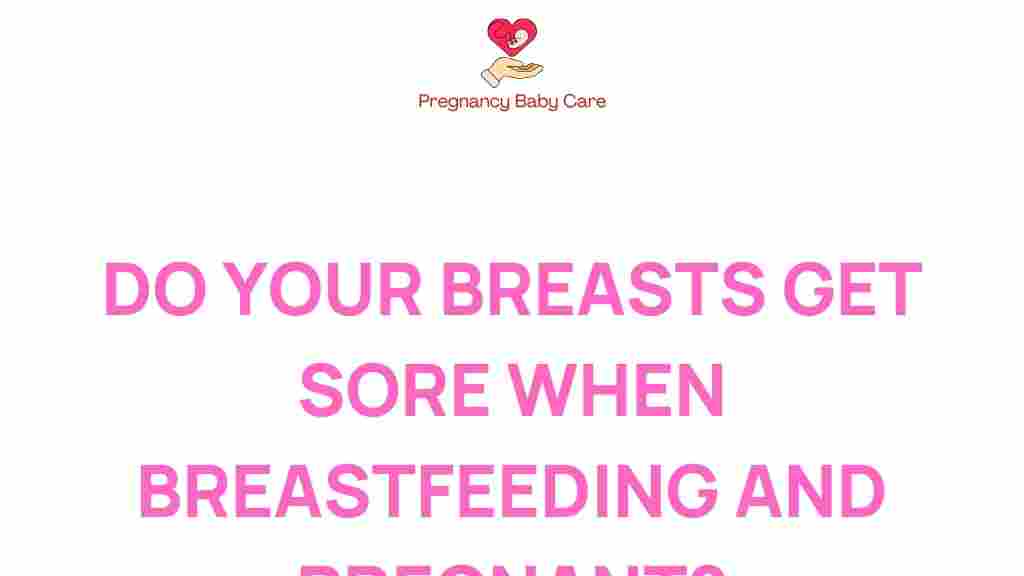The Truth Behind Sore Breasts During Pregnancy and Breastfeeding
Experiencing sore breasts during pregnancy and breastfeeding is a common concern for many expectant and new mothers. Understanding the reasons behind this discomfort can help alleviate fears and provide insight into maternal health during these critical stages of life. In this article, we will explore the causes of breast soreness, how it relates to lactation, and what can be done to manage the discomfort effectively.
Understanding Breast Soreness
Sore breasts, also known as mastalgia, can be a natural part of the changing body during pregnancy and the early days of breastfeeding. The body undergoes numerous hormonal changes, which can lead to various sensations, including tenderness, fullness, and pain in the breasts. Here are some key points to consider:
- Hormonal Changes: During pregnancy, increased levels of estrogen and progesterone can cause the breast tissue to swell and become sensitive.
- Breast Development: The body prepares for lactation by developing the milk glands and ducts, which can contribute to feelings of discomfort.
- Milk Production: After childbirth, as your body begins to produce milk, you may experience fullness and tenderness as your breasts adjust to the new demands of baby care.
Causes of Sore Breasts During Pregnancy
Several factors can lead to sore breasts during pregnancy:
- Hormonal Fluctuations: As mentioned, hormonal changes are one of the primary causes. The breasts undergo significant changes in preparation for nursing.
- Increased Blood Flow: The body increases blood flow to the breasts, leading to swelling and sensitivity.
- Stretching Skin: As the breasts grow, the skin stretches, which can cause discomfort.
Managing Sore Breasts During Pregnancy
To manage sore breasts during pregnancy, consider the following steps:
- Wear a Supportive Bra: A well-fitting, supportive bra can help alleviate discomfort.
- Apply Warm or Cold Compresses: Use warm packs or cold compresses to reduce swelling and pain.
- Practice Relaxation Techniques: Stress can exacerbate discomfort, so consider yoga or meditation.
- Stay Hydrated: Drinking plenty of water can help with overall health and may ease some discomfort.
Understanding Breast Soreness During Breastfeeding
After giving birth, many women experience sore breasts while establishing a breastfeeding routine. This soreness can be caused by:
- Nipple Pain: Improper latch or positioning can lead to significant nipple pain.
- Engorgement: When the breasts become overly full, discomfort can increase.
- Blocked Ducts: Milk ducts can become blocked, leading to pain and swelling.
Tips for Alleviating Sore Breasts During Breastfeeding
To help manage discomfort while breastfeeding, consider the following:
- Ensure Proper Latch: Work with a lactation consultant to ensure your baby is latching correctly.
- Switch Positions: Try different breastfeeding positions to find what is most comfortable.
- Use Nipple Cream: Applying a soothing cream can help with nipple pain.
- Feed Frequently: Regular feeding can help prevent engorgement and blocked ducts.
What to Do About Persistent Discomfort
If you find that breast soreness persists despite these measures, it may be time to consult a healthcare professional. Here are some troubleshooting tips:
- Consult a Lactation Specialist: They can help address any issues with latch or feeding technique.
- Seek Medical Advice: Persistent soreness may require a medical evaluation to rule out infections or other issues.
- Monitor Symptoms: Keep track of your symptoms, noting when the soreness occurs and its severity.
Postpartum Recovery and Maternal Health
After childbirth, the focus often shifts to the health of the newborn, but maternal health is equally important. Postpartum recovery can involve physical and emotional challenges, including:
- Physical Recovery: Your body needs time to heal after childbirth, and breast discomfort can be part of that process.
- Emotional Wellbeing: Hormonal changes can also affect mood and emotional health. Seek support if needed.
- Self-Care: Prioritize self-care and rest during this time to support overall recovery.
Conclusion
Understanding the truth behind sore breasts during pregnancy and breastfeeding can help mothers navigate this often uncomfortable experience. With the right knowledge and tools, it is possible to manage discomfort and focus on the joys of baby care. Remember that while sore breasts are common, persistent pain should be evaluated by a healthcare provider to ensure there are no underlying issues affecting your maternal health.
For more information on breastfeeding and maternal health, visit Breastfeeding.gov.
If you are looking for practical tips on postpartum recovery, check out our detailed guide here.
This article is in the category Breastfeeding and created by PregnancyBabyCare Team
